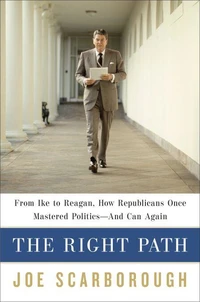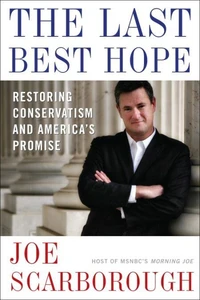Unti on 1979. Lincoln, the Emancipation Proclamation, and the Fight for the Future of America
Par :Formats :
Actuellement indisponible
Cet article est actuellement indisponible, il ne peut pas être commandé sur notre site pour le moment. Nous vous invitons à vous inscrire à l'alerte disponibilité, vous recevrez un e-mail dès que cet ouvrage sera à nouveau disponible.
Disponible dans votre compte client Decitre ou Furet du Nord dès validation de votre commande. Le format ePub protégé est :
- Compatible avec une lecture sur My Vivlio (smartphone, tablette, ordinateur)
- Compatible avec une lecture sur liseuses Vivlio
- Pour les liseuses autres que Vivlio, vous devez utiliser le logiciel Adobe Digital Edition. Non compatible avec la lecture sur les liseuses Kindle, Remarkable et Sony
- Non compatible avec un achat hors France métropolitaine
 , qui est-ce ?
, qui est-ce ?Notre partenaire de plateforme de lecture numérique où vous retrouverez l'ensemble de vos ebooks gratuitement
Pour en savoir plus sur nos ebooks, consultez notre aide en ligne ici
- Nombre de pages288
- FormatePub
- ISBN978-0-06-295056-7
- EAN9780062950567
- Date de parution15/10/2025
- Protection num.Adobe DRM
- Infos supplémentairesepub
- ÉditeurHarper
Résumé
The New York Times bestselling author of Saving Freedom and cohost of Morning Joe assesses President Abraham Lincoln's deft timing for the Emancipation proclamation and its consequences for America. Abraham Lincoln's pragmatism combined with a devotion to higher ideals made him the American leader capable of accomplishing the seemingly impossible: saving the Union and ending slavery. The year was 1862.
The Union's first large scale offensive, the Peninsula campaign led by Major General George B. McClellan, had been disastrous. Doubt in Congress grew that President Lincoln and his generals could win the war. In Saving the Union, Joe Scarborough analyzes the hard choice Lincoln faced-the debate raging inside him over how quickly to move toward emancipation, if at all. Lincoln feared that if he moved too quickly, he would lose support for the war, including the conservatives in the border states, thus ensuring the dissolution of the Union.
When he finally issued the Emancipation Proclamation, he rallied his party, demoralized the South, won over Europe, and changed the course of human history. But only because he timed it perfectly. Scarborough reveals how Lincoln's brilliant Shakespearean insight that "ripeness is all" made him the greatest American president after Washington, and the bridge between the Founding Fathers and Civil Rights leaders, including Martin Luther King, Jr and John Lewis.
As Saving the Union clearly demonstrates, no other leader in his time, and few in American history, could have effectively balanced the preservation of the Union with the liberation of the slaves as Lincoln did-and that has made all the difference. Scarborough offers a fresh and thoughtful examination of this key event in Lincoln's presidency, and pays tribute to his astute leadership-a legacy which as indelibly influenced the course of America's development and continues to inspire us today.
The Union's first large scale offensive, the Peninsula campaign led by Major General George B. McClellan, had been disastrous. Doubt in Congress grew that President Lincoln and his generals could win the war. In Saving the Union, Joe Scarborough analyzes the hard choice Lincoln faced-the debate raging inside him over how quickly to move toward emancipation, if at all. Lincoln feared that if he moved too quickly, he would lose support for the war, including the conservatives in the border states, thus ensuring the dissolution of the Union.
When he finally issued the Emancipation Proclamation, he rallied his party, demoralized the South, won over Europe, and changed the course of human history. But only because he timed it perfectly. Scarborough reveals how Lincoln's brilliant Shakespearean insight that "ripeness is all" made him the greatest American president after Washington, and the bridge between the Founding Fathers and Civil Rights leaders, including Martin Luther King, Jr and John Lewis.
As Saving the Union clearly demonstrates, no other leader in his time, and few in American history, could have effectively balanced the preservation of the Union with the liberation of the slaves as Lincoln did-and that has made all the difference. Scarborough offers a fresh and thoughtful examination of this key event in Lincoln's presidency, and pays tribute to his astute leadership-a legacy which as indelibly influenced the course of America's development and continues to inspire us today.
The New York Times bestselling author of Saving Freedom and cohost of Morning Joe assesses President Abraham Lincoln's deft timing for the Emancipation proclamation and its consequences for America. Abraham Lincoln's pragmatism combined with a devotion to higher ideals made him the American leader capable of accomplishing the seemingly impossible: saving the Union and ending slavery. The year was 1862.
The Union's first large scale offensive, the Peninsula campaign led by Major General George B. McClellan, had been disastrous. Doubt in Congress grew that President Lincoln and his generals could win the war. In Saving the Union, Joe Scarborough analyzes the hard choice Lincoln faced-the debate raging inside him over how quickly to move toward emancipation, if at all. Lincoln feared that if he moved too quickly, he would lose support for the war, including the conservatives in the border states, thus ensuring the dissolution of the Union.
When he finally issued the Emancipation Proclamation, he rallied his party, demoralized the South, won over Europe, and changed the course of human history. But only because he timed it perfectly. Scarborough reveals how Lincoln's brilliant Shakespearean insight that "ripeness is all" made him the greatest American president after Washington, and the bridge between the Founding Fathers and Civil Rights leaders, including Martin Luther King, Jr and John Lewis.
As Saving the Union clearly demonstrates, no other leader in his time, and few in American history, could have effectively balanced the preservation of the Union with the liberation of the slaves as Lincoln did-and that has made all the difference. Scarborough offers a fresh and thoughtful examination of this key event in Lincoln's presidency, and pays tribute to his astute leadership-a legacy which as indelibly influenced the course of America's development and continues to inspire us today.
The Union's first large scale offensive, the Peninsula campaign led by Major General George B. McClellan, had been disastrous. Doubt in Congress grew that President Lincoln and his generals could win the war. In Saving the Union, Joe Scarborough analyzes the hard choice Lincoln faced-the debate raging inside him over how quickly to move toward emancipation, if at all. Lincoln feared that if he moved too quickly, he would lose support for the war, including the conservatives in the border states, thus ensuring the dissolution of the Union.
When he finally issued the Emancipation Proclamation, he rallied his party, demoralized the South, won over Europe, and changed the course of human history. But only because he timed it perfectly. Scarborough reveals how Lincoln's brilliant Shakespearean insight that "ripeness is all" made him the greatest American president after Washington, and the bridge between the Founding Fathers and Civil Rights leaders, including Martin Luther King, Jr and John Lewis.
As Saving the Union clearly demonstrates, no other leader in his time, and few in American history, could have effectively balanced the preservation of the Union with the liberation of the slaves as Lincoln did-and that has made all the difference. Scarborough offers a fresh and thoughtful examination of this key event in Lincoln's presidency, and pays tribute to his astute leadership-a legacy which as indelibly influenced the course of America's development and continues to inspire us today.



